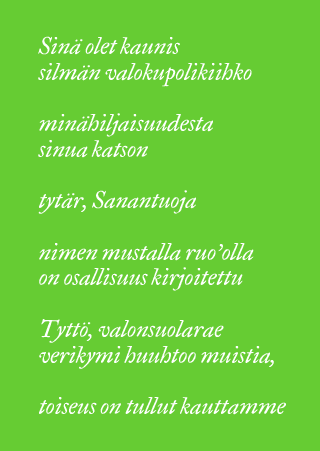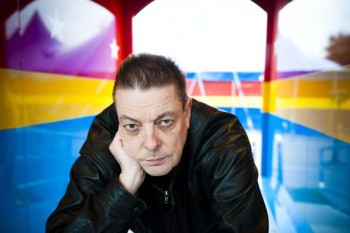Author: Tarja Roinila
Sound and meaning
20 January 2012 | Essays, Non-fiction

Harri Nordell’s poem from Huuto ja syntyvä puu (‘Scream and tree being born’, 1996)
Translating poetry is natural, claims Tarja Roinila; it is a continuation of writing it, for works of poetry are not finished, self-sufficient products. But is the translator the servant of the meaning – or of the letter?
I am sitting in a cafe in Mexico City, trying to explain in Spanish what valokupolikiihko, ‘light-cupola-ecstasy’, means. And silmän valokupolikiihko, ‘the light-cupola-ecstasy of the eye’.
I take to praising the boundless ability of the Finnish language to form compound words, to weld pieces together without finalising the relationships between them, never mind establishing a hierarchy: the eye is a light-cupola, the eye is ecstatic about light-cupolas, light creates cupolas, the cupola lets out the light, the eye, in its ecstasy, creates a light-cupola. More…


